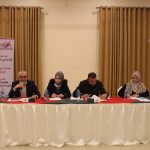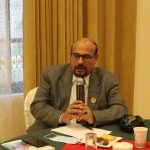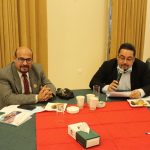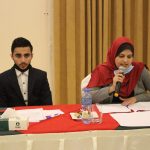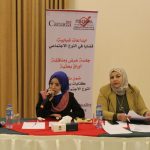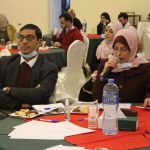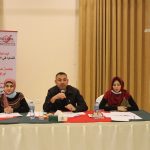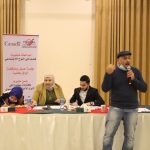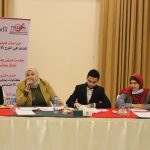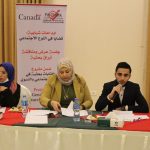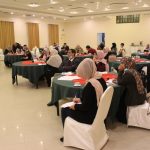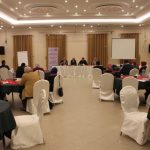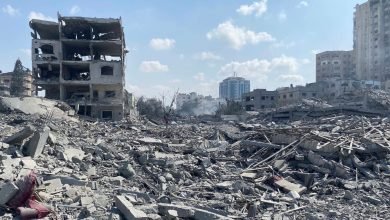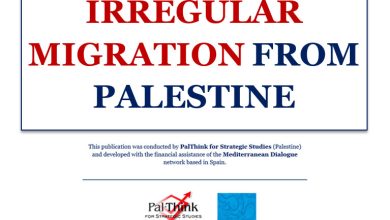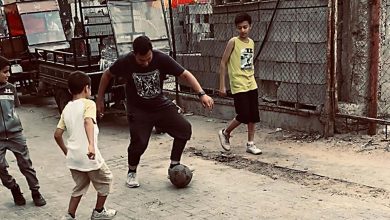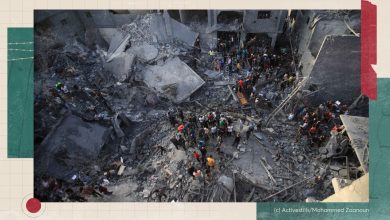Youth Creativity: A Roundtable Discussion by Pal-Think to Discuss 7 Research Papers on Women’s Issues
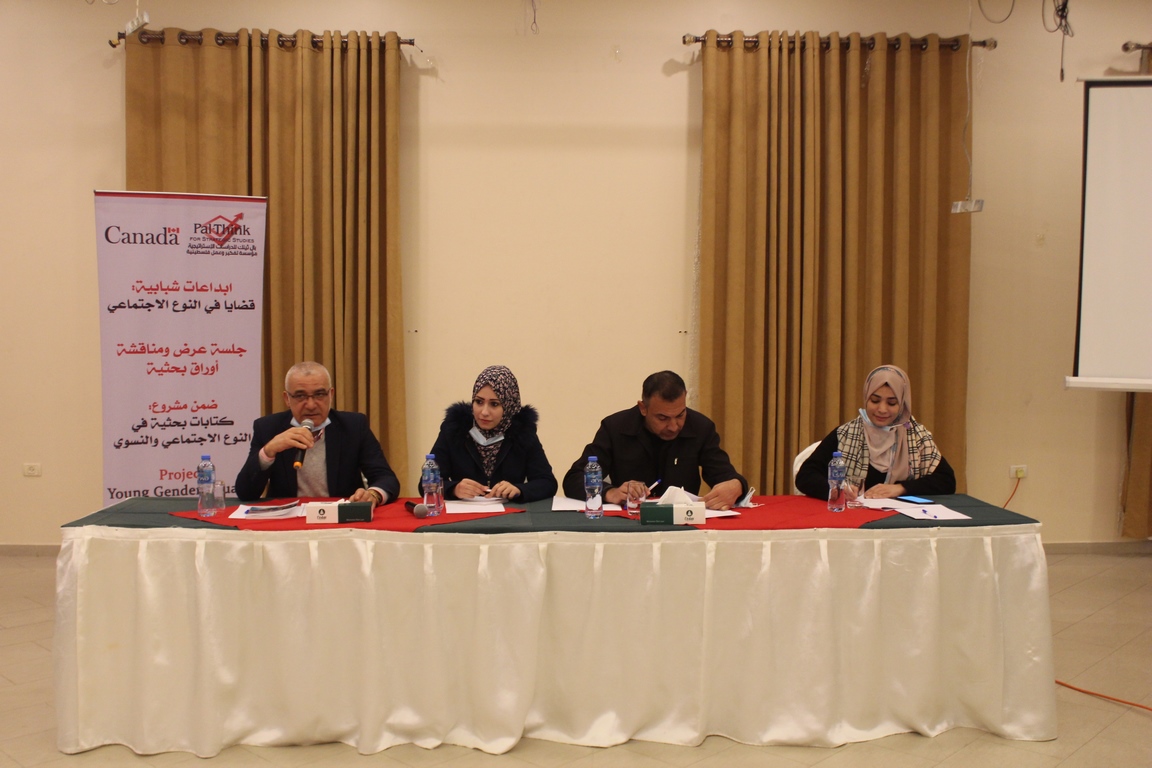
Pal-Think for Strategic Studies organized a roundtable discussion to discuss seven research papers on women’s issues with the participation of a number of researchers, civil society organizations and law centres. These research papers are within the Young Gender- Equality Research Chapter’s project which is carried out by Pal-Think and funded by the Government of Canada.
The meeting was opened by Mr Omar Shaban, the director of Pal-Think, who welcomed the attendance and said that this session is of the research papers that have been going on for several months in cooperation with the Government of Canada. Then he emphasised that they are so proud of this project and this partnership, which felt that they were doing something important to Palestinian people.
He also added that Pal-Think is implementing this project within its vision of sustainable development in the Gaza Strip in particular and Palestine in general. He also stressed that they are trying to put young men and women at the beginning of their steps on their lives.
Shaban stressed that one of the most important principles of his institution was to broaden the circle of engagement and work with all, dealing with all politicians, writers and researchers, from all parties and organizations in the Gaza Strip. Omar described Pal Think as an open independent organization and does not follow any partisanship
Mr Omar concluded by saying that all the papers prepared by the trainees will be published in Arabic and English, and they are proud of that because these indicators give trainees hope and confidence in young people. He noted that the researchers, who present their papers in this workshop, would be one day in charge and as leaders.
At the first session, which was moderated by the researcher and writer in political science, Dr Islam Attalla, researchers Wasim Alkalify and Areej Jreed discussed a paper entitled “Women’s Participation in Palestinian Political Life, which reviewed statistics and ratios of women’s representation in the National and Legislative Councils and produced several findings, the most important of which were: In the political landscape, women suffered from a lack of full and genuine representation, and the situation of women in political parties had fallen short.
Researchers Sawsan Al Ajouri and Hadeel Zaqoot highlighted in their papers the distinction between university admission rates and the reality of female students in Gaza Strip universities, and came up with several recommendations, the most important of which were: Gender acceptance rates must be consolidated and civil society organizations must be interested in this issue.
The researcher Norhan Al-Tabataibi reviewed in her paper the challenges of passing the Family Protection against Violence Act in view of the disruption of the Legislative Council and the high rates of domestic violence within Palestinian society. The study found that there was no political will to pass the law and that the lack of deterrent laws on domestic violence had increased it.
Moreover, the researcher Yasmeen Al-Dreamly’s paper was the extent to which the Personal Status Act took into account the interests of the mother and her child at the age of custody, and the reality of the laws and problems experienced by women in this case. The results of the study include: The current foster care system has negative effects on children and mothers, and some children are used as a means of extortion against their mothers.
At the second session, which was moderated by the lawyer and specialist in women and gender issues, Mrs Heba Al – Dhanaf, researchers Abdullah Abo Shamla and Mai Al – Sous discussed the role of cultural activities in addressing gender-based violence. The aim of the paper was to promote cultural activities in community institutions and to raise people’s awareness of these issues and involve them in the development of cultural solutions. The study made several recommendations, including the need to allocate material support to cultural activities related to issues of gender-based violence and to create a cultural lobby to promote such activities.
Furthermore, the researcher Ms Heba Abo Bakra on her papers dealt with mechanisms to promote young women’s access to leadership positions in Palestinian civil society institutions. She highlighted the problem of the research paper as the rare presence of young women in boards and decision-making positions in civil society institutions. The results of the paper include poor participation and representation of young women in senior positions in civil society institutions and challenges and constraints faced by non-governmental organizations in the Gaza Strip.
Finally, the researcher Ms Sahar Lobbad addressed the role of feminist literature in promoting feminist awareness in the Gaza Strip, the extent to which feminist studies shape women’s awareness, and the challenges that hinder gender researchers. The paper produced several findings, including the limited time-bound impact of feminist awareness, and the lack of a permanent supporter to draw Palestinian women researchers to express women’s issues.
Finally, the main focus of the papers was also discussed by the audience, which was an enriching debate, where the observations and recommendations reinforced the themes raised by the participants.
- “The designations employed and the representation of material in this program do not imply the expression of any opinion whatsoever on the part of the Government of Canada.”

